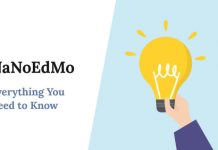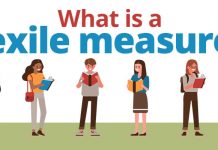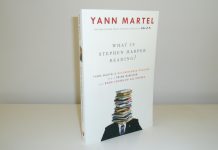Named after the German printer Johannes Gutenberg who invented movable type in the 15th century, as the oldest digital library Project Gutenberg (PG) might be onto something equally big five centuries later.
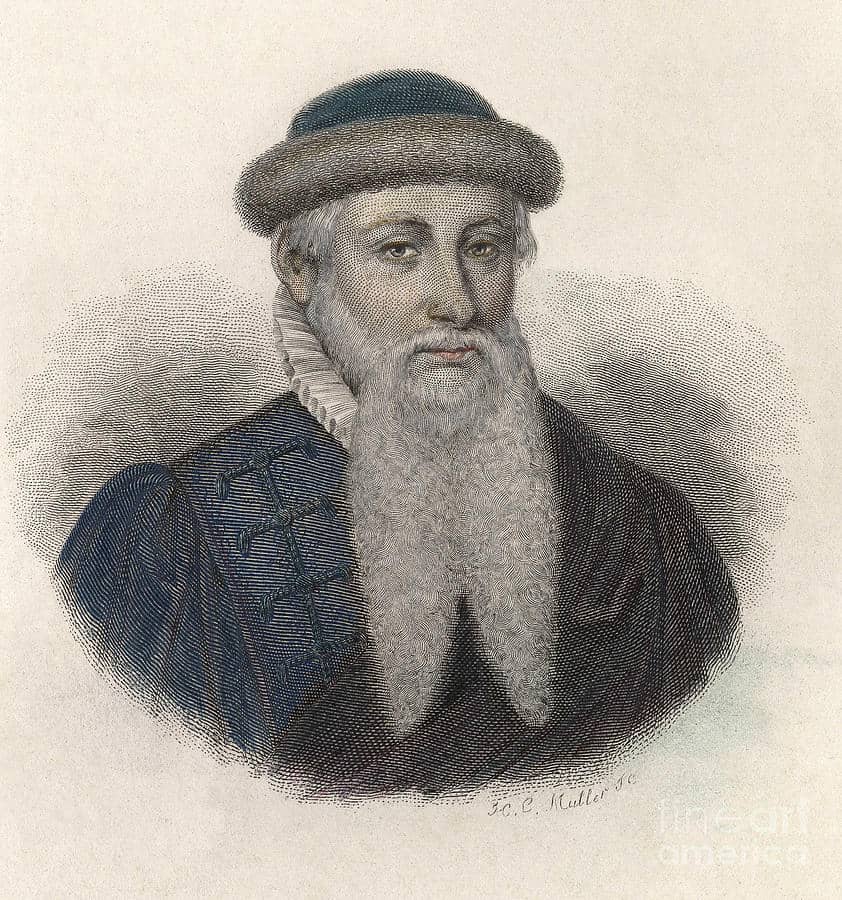
The History of Project Gutenberg
Project Gutenberg started in 1971 when founder Michael Hart, then a student at the University of Illinois, was given access to one of the 15 material research lab’s Xerox Sigma V mainframe computers that would become the future Internet. The four randomly selected computer operators were also given accounts with a virtually unlimited amount of computer time and the encouragement to play around with it to gain as much job proficiency as possible.

Hart decided to repay what was even then a huge value – estimated today anywhere from $100,000 to $100,000,000 – not by computing but by storing, retrieving and searching of library collections. He promptly started typing the “Declaration of Independence” into the computer – the first electronic text – and later tried to send it to everyone on the network – the first version of spam.
The Project Gutenberg Philosophy
Project Gutenberg today is a volunteer organization with many chapters around the world. Its simple mission statement has not changed from the project’s beginning in 1971, namely to “encourage the creation and distribution of e-books.” The e-book project prides itself on working with minimal guidelines and under minimal supervision. Volunteers are encouraged to digitize what they want and in whatever format they want.
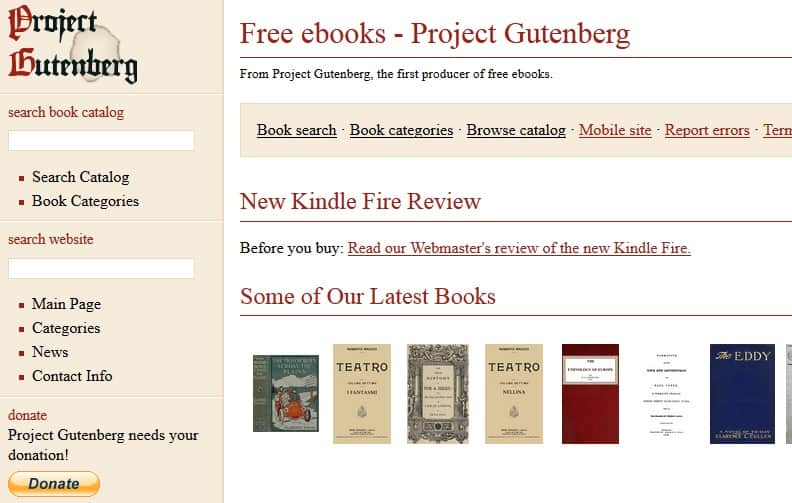
All text had to be entered manually before book scanning became feasible and sped up the process considerably after 1989. Therefore, Hart’s initial goal to make the 10,000 most consulted books available to the general public in electronic format by the end of the 20th century was achieved in late 2003.
Today, Project Gutenberg’s online book catalog spans nearly 30,000 free e-books. Since 2000, Distributed Proofreaders (DP) coordinates the proofreading of scanned content.
Project Gutenberg and Copyright
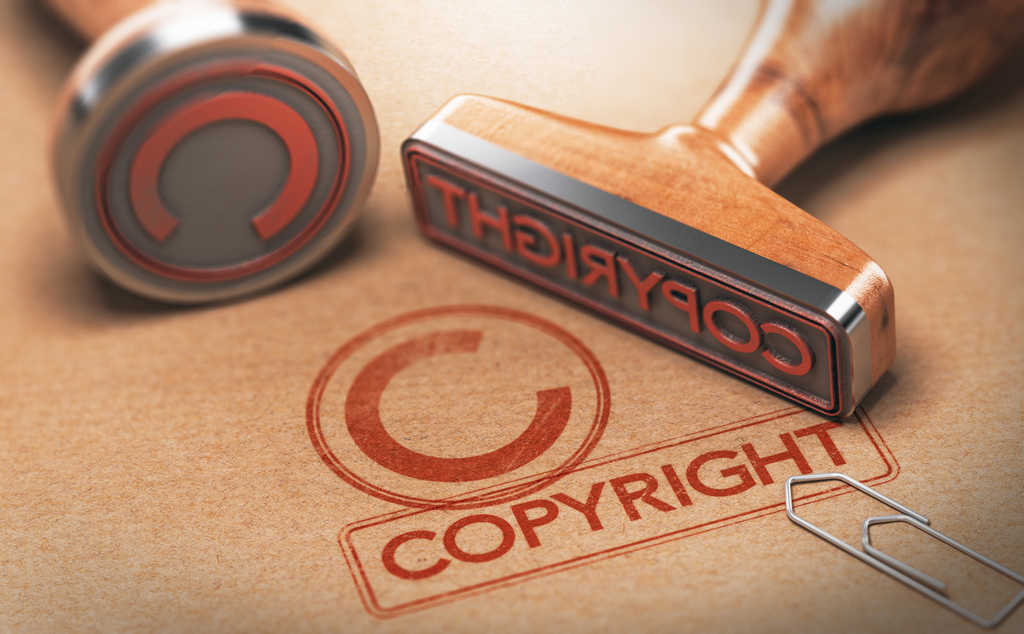
How can Project Gutenberg offer tens of thousands of books for public use? The organization is careful to distribute only works that are in the public domain according to U.S. copyright law. These are mainly classic texts whose copyright has expired; those placed by the author in the public domain or copyrighted works made available to Project Gutenberg specifically by the author.

The project’s popularity and its partners and affiliates in many countries indicate that classics have a strong appeal among the general public. Project Gutenberg’s most popular titles, frequently updated on its website, read like a wish list of must-read literature.
Most Popular Books on Project Gutenberg
Project Gutenberg users are tech-savvy and know how to download formats that can be read on Kindle, iphones and other e-book readers. A look at Project Gutenberg’s Top Ten downloads of the last seven days shows that health and non-fiction titles are as popular as literary classics.
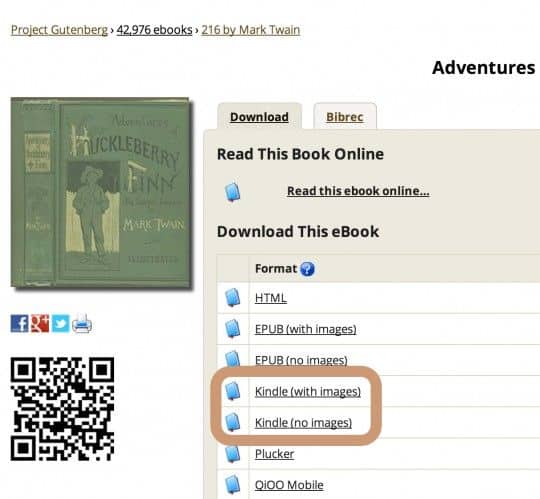
- J. Arthur Thompson: The Outline of Science, Vol. 1
- Jane Austen: Pride and Prejudice
- Vatsyayana: The Kamasutra by Vatsyayana
- P.L. Jacob: Manners, Customs, and Dress during the Middle Ages and during the Renaissance Period
- Alexander Miles and Alexis Thomson: Manual of Surgery, Vol. 1
- Lewis Carroll: Alice’s Adventures in Wonderland
- Sir Arthur Conan Doyle: The Adventures of Sherlock Holmes
- Frederick Litchfield: Illustrated History of Furniture
- B.G. Jefferis and J.L. Nichols: Searchlights on Health
- James Joyce: Ulysses
Other well-known titles that can be found just a bit further down in the download charts are Les Miserables by Victor Hugo, Bam Stoker’s Dracula, Grimm’s Fairy Tales and The Adventures of Huckleberry Finn by Mark Twain – all must-read literature.
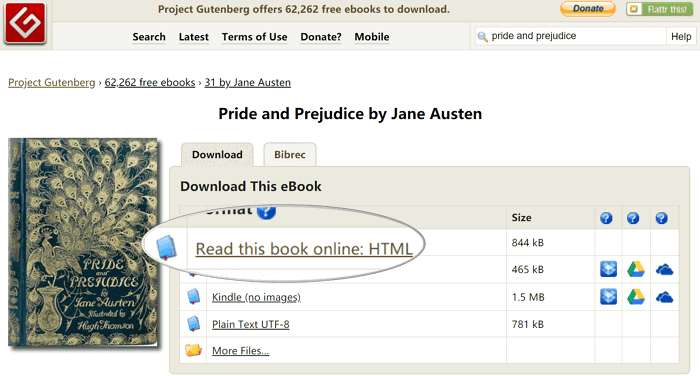
Without doubt, Project Gutenberg has been a pioneer in regards to the digitization of the world’s literature and has spurred on many similar projects. As a volunteer-based, non-profit organization, Project Gutenberg has remained independent and is dedicated to “breaking down the bars of ignorance and illiteracy.”





